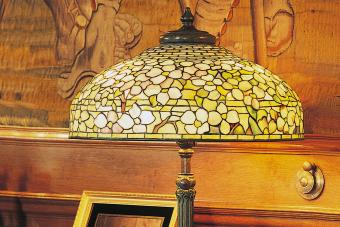
The Antiques Roadshow scandal in 1997 threatened to ruin what had become an immensely popular program. When Antiques Roadshow started airing, antique buffs and history fanatics were abuzz. This show captured America's attention. With millions of viewers every week and excellent ratings for a show on the Public Broadcasting System, the show soared to success.
The show's producers traveled the country with various antiques appraisers, and local people at places where the show stopped would come in with various items. The appraisers would give an on-the-spot estimate of the item's value.
Season One
Stephen Sadtler's Sword
The first season featured several interesting clips. In one, Stephen Sadtler brought in a sword. Mr. Sadtler said he'd owned the sword since he was a boy and was considering selling it. Russ Pritchard, one of the show's appraisers, told a surprised Mr. Sadtler the sword was worth $35,000.
A Woman's Middle-Ages Treasure
In another episode, George Juno told an unidentified woman that a 17th-century item she brought in was worth an estimated $250,000. These two episodes were among the most exciting appraisals of the first season, and they intrigued viewers.
Staging Revealed
The Boston Herald, investigating the inner workings of the show, discovered these appraisals to be false. The Antiques Roadshow producers undertook their own investigation. The Herald had not verified their falsehood; they simply uncovered the allegations. Roadshow executives tasked Louis Wiley, who worked for the parent station WBGH in Boston.
Mr. Wiley confirmed that Mr. Sadtler and Mr. Pritchard attended high school together. While the sword's value was real, Mr. Sadtler was not the rightful owner. The two men staged the appraisal. In the other case, the show could not confirm the falsehood of the item, but they considered it a suspect appraisal nonetheless. PBS pulled the two questionable episodes.
Antiques Roadshow Damage Control
When the Herald's story aired, the show was in its second season, and the Antiques Roadshow scandal threatened the popularity of this unique television series. Producers for the show moved quickly to address the problem. They wanted to make sure that these false appraisals were isolated incidents and that the show's credibility remained intact.
The show's producers opted to deal with the issue publicly. They explained to viewers through various media outlets that the show did not approve of the decision of these two appraisers. Mr. Juno and Mr. Pritchard were banned from the show although Mr. Pritchard claimed in an interview that he did not intend to hurt the show. He only wanted to let viewers know that they could have exciting finds among their attic and basement storage bins.
The show also enacted new policies regarding appraisers. The show's appraisers had to undergo extensive training and background checks. The show's producers also began requiring signed contracts indicating that no such staging would happen in the future. Investigations also indicated that only those two appraisals were staged in the show's first season.
The Antiques Roadshow Scandal Aftermath
The scandal followed the program until its end, but many viewers remained faithful. Now, few accounts of the odd popularity of this show exist without at least a brief mention of the fake appraisals. Viewers, though, kept the show alive through six seasons, and the staged appraisals do not seem to have put a damper on the people who turned out to see if their junk could be turned to treasure.
The Roadshow scandal is one of the few scandals in reality television programming. A 1950s game show, Twenty One, lost favor with the public when people discovered the show prepared its contestants beforehand for the questions they would face. Roadshow survived in part because the quick action and full story released by the show's producers assured viewers and critics the fault lay with the unscrupulous appraisers only and not the show itself.
This show is one of the first major reality shows in the United States. It was an off-shoot of a BBC show of the same name (later renamed Antiques Roadshow UK). This unfortunate scandal shows producers how careful they must be to screen everyone involved in a reality show.







